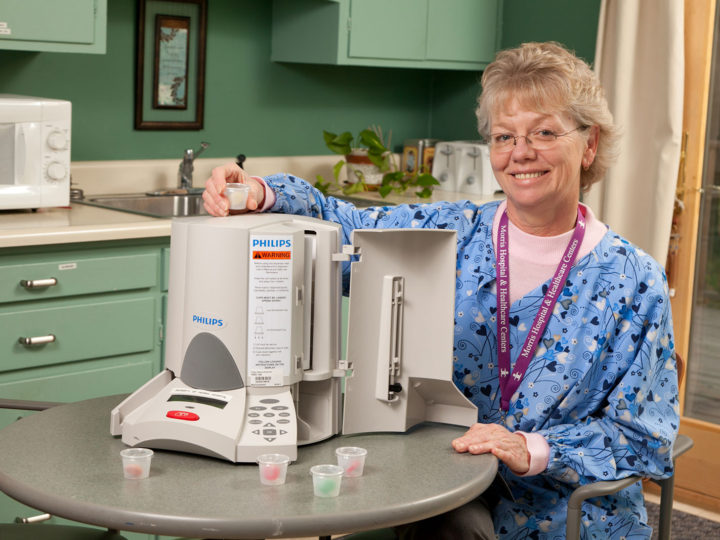Are You Mistaking That Fall Allergy for a Cold?
 If you currently have symptoms of hay fever, including sneezing, a runny nose, itchy, watery eyes, a scratchy throat and a cough, you probably have fall allergies. Related sinus and nasal inflammation can lead to congestion and headaches, causing you to feel miserable.
If you currently have symptoms of hay fever, including sneezing, a runny nose, itchy, watery eyes, a scratchy throat and a cough, you probably have fall allergies. Related sinus and nasal inflammation can lead to congestion and headaches, causing you to feel miserable.
“Weed pollen, predominantly ragweed, is the most common trigger for allergic symptoms in the fall,” said Dr. Hetal Amin, an Allergist-Immunologist with Morris Hospital Allergy Specialists. “Various molds, such as those found in wet mown grass and damp leaves, are another common trigger.”
Dr. Amin also notes several lesser-known causes of allergy symptoms.
“Dust mites can contribute to indoor allergies in the fall, since they get stirred into the air when the furnace is first turned on,” she added. “Also, foods such as melons, bananas and zucchini can trigger symptoms due to the similarity of their food proteins to ragweed pollen.”
Allergy sufferers typically resort to over-the-counter medications such as antihistamines, nasal sprays and eye drops. While effective when used correctly, many people mistake allergies for cold symptoms, and may use the wrong medications.
“Patients generally benefit from seeing an allergist, who can perform skin testing for various indoor and outdoor allergens,” said Dr. Amin. “A treatment plan will offer avoidance measures, appropriate medications, or long-term treatment options such as immunotherapy (allergy injections). Immunotherapy builds the immune system so the patient can tolerate the allergens that trigger their symptoms, rather than suffering from symptoms and guessing which medication will work.”
Dr. Amin offers many strategies to her patients who suffer from fall allergies, including keeping windows shut, running the air conditioner to re-circulate indoor air, and using HEPA filters to trap pollen, dust mites, and mold. She also recommends limiting decongestant nasal sprays to 5 days, as they can cause “rebound congestion” and make symptoms even worse.
For more information, please visit the Morris Hospital Allergy Specialists web page or contact:
Dr. Hetal Amin, Allergist-Immunologist
Morris Hospital Allergy Specialists
27240 W. Saxony Dr.
Channahon, IL
Phone: (815) 705-1300




